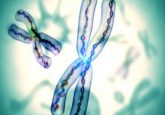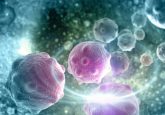New treatment target for aggressive breast cancer identified
A team of researchers from the Medical College of Georgia at Georgia Regents University (GA, USA) have identified a protein partner for the oncogene ErbB2, inhibition of which prevents the growth of breast cancer.
ErbB2, often termed HER2, is an oncogene that is highly expressed in approximately 25% of breast cancers. The research team discovered that the protein Erbin, thought to be an antitumor factor, is also highly expressed in these cancers and is necessary for ErbB2’s support of breast cancer.
The international team, who reported their results recently in the journal PNAS, found that tumor development and spread to the lungs was inhibited when they interfered with the interaction between Erbin and ErbB2 in mice. Furthermore, both Erbin and ErbB2 were demonstrated to be overexpressed in 171 cases of mainly aggressive human breast cancer.
Their findings point toward a potential new therapeutic target for aggressive breast cancer and also an adjunct for those women who develop resistance to trastuzumab (Herceptin®), the drug commonly given to patients who are ErbB2 positive, comments Lin Mei (Medical College of Georgia at Georgia Regents University). Furthermore, Mei suggests that Erbin could be a diagnostic biomarker that is observed for by physicians in breast tissue biopsies.
Further investigation demonstrated that Erbin is critical to the stability and activity of aggressive ErbB2-positive breast cancer. When Erbin levels were decreased, either by a peptide that interfered with the interaction of Erbin and ErbB2 or by a gene therapy technique that reduced its production, the growth and spread of breast cancer was dramatically reduced or eliminated. “Erbin is an intracellular molecule that binds to ErbB2 and stabilizes it,” Mei commented. “If you take it out, ErbB2 becomes unstable.”
While Erbin is intracellular, ErbB2 extends both outside and inside breast cancer cells; drugs such as trastuzumab target the portion outside the cell in order to degrade excessive levels of the oncogene. This approach is so effective that Mei claims it can move patients from high risk of death to a cure.
“But the tumors are very smart,” Mei commented. Breast cancer cells can mutate so that there is no longer an external protrusion of ErbB2, and thus nowhere for trastuzumab to bind, eventually leading to drug resistance. Although it can be more difficult to get inside these cells, the ability to target intracellular Erbin could one day make a huge difference to those patients who have developed resistance.
“Erbin itself could be a novel target: you disrupt the interaction, and it will be therapeutic,” Mei said. “Secondly, when a patient becomes Herceptin-resistant because the extracellular domain of ErbB2 is lost, this approach should still be effective because of the critical interaction of the two.”
Looking forward, the team aims to refine the peptide they utilized in their laboratory studies as well as to carry out high-throughput screenings to look at other potentially influential existing small molecules.
Source: Medical College of Georgia at Georgia Regents University press release via EurekAlert



